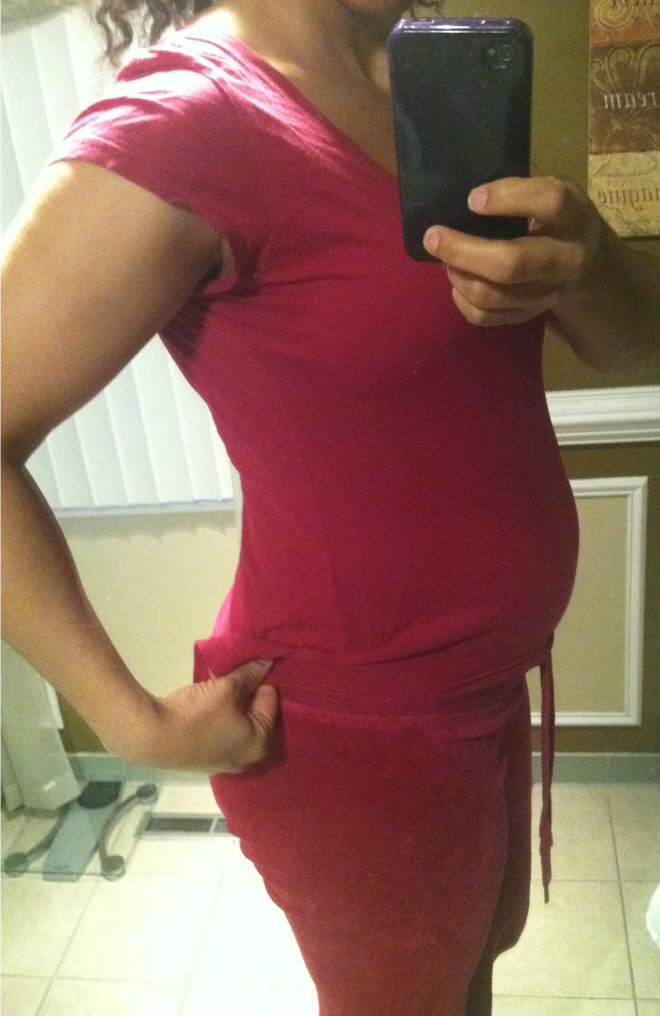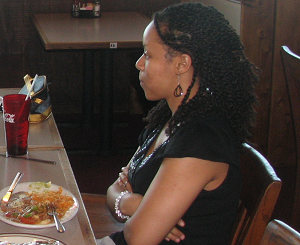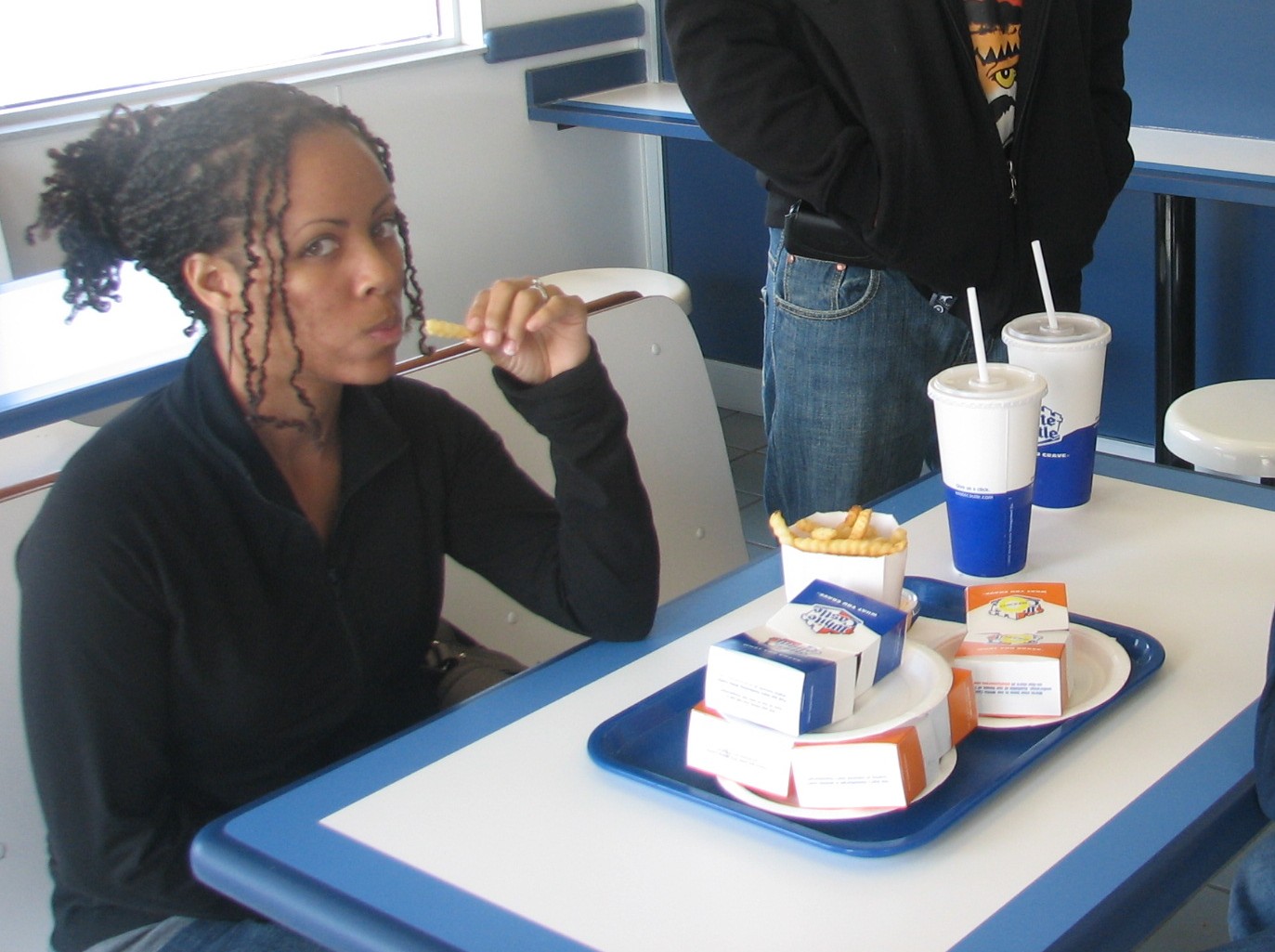by EM2WL | Jul 21, 2012 | Metabolism Reset, Testimonials, The Journey

Kelly – taking her life back w/a vengeance!
My name is Kelly, and I have been overweight my entire life. As a child, I can remember my grandmother offering me a dollar for every pound I lost. My mother offering me contact lenses instead of glasses to lose the weight. I can even remember in grade 7, a very cruel man at a horse stable, watching me struggle to get on a horse during a class trip, who decided to yell out for all to hear, “Jesus, how much do you weight? 200 pounds?? You might kill my horse!” It was probably one of the most embarrassing moments of my life, and unfortunately something still ingrained in my head.
I have never ridden a horse since.
I spent the better part of my young life overweight, unhealthy, unhappy and miserable. I had my wake up call when I was 24 years old. I woke up in the middle of the night with heart palpitations, sweating and short of breath. I knew this was my sign to change my life and get healthy, once and for all. It was shortly after, a Weight Watchers At Work program began in my office, and I immediately signed up. Over the next 5 years, I slowly lost the weight. By the time my wedding hit in the spring of 2007, I had lost 102 pounds, going from a size 24 to a size 14. I was very much the beautiful bride, something I am very proud to look back on and know how hard I worked for it. True, I was not yet at goal, but I was something I had never been before.. Average size. I still had about 30 pounds left to lose according to the scale, and I was hoping to get a bit more of it off before we took the plunge and had kids.
5 months later, I was pregnant with our first child. It was like a light switch went off in my head and I turned off the weight loss capabilities and just slacked on the eating. Now granted, I was not eating poorly overall, but I was eating more than I had been allowed on Weight Watchers. During the course of my pregnancy I had gained 70 pounds back – Something that shamed me, made me feel horrible and ugly once more and made me hate the last few weeks of my pregnancy. After the birth of my first, I hit that 6 week mark and immediately went back to the WW program. I spent the next 18 months trying desperately to lose the baby weight. I managed to get to about 25 pounds away from my pre-pregnancy weight before I was pregnant again. This time I paid more attention to my eating, continued working out at the gym and watching everything. I had managed to make it almost half way through the pregnancy, before I had to stop going to the gym. Over the last 20 weeks of my pregnancy, I still somehow managed to gain about 45 pounds. It just seemed to be even eating a little bit more than I was used to, was causing me huge gains.
Needless to say, It wouldn’t be until almost 18 months after my second child’s birth, that I finally understood WHY I struggled so much to keep the weight off during pregnancy, and why it has been so hard to get it off a second and third time.
In January of 2012, I decided to try the C25K program as a way to hopefully boost my fledgling weight loss efforts. I was once again back at Weight Watchers and still could not get anywhere on the weight loss front. In 8 weeks I went from running barely 30 seconds, to running a full 5k (40 mins for me:)) It was probably one of the few things as an adult I was proud I had done for myself. I never wanted to be a runner, but I wanted to prove to myself I could do it. And now I do enjoy it. During my training, I was barely eating my weekly flex points, let alone the 54 activity points I was earning in a week. I could always hear my leader in the back of my head saying I needed to eat more, but for some reason, I could never connect it in my brain. It was during this time that I realized I had an account on MFP, and decided to give it another try, as another way of tracking my food, get a different outlook on things.
In my first week looking through the forums, I came across the Eat More to Weigh Less Group. I was curious how they could eat so much and still lose the weight, so I decided to read the posts they had listed, ask questions and get a different look on weight loss. I think it took me a few days to convince myself I needed to eat more, even though I knew on WW, I was not eating enough. I began by taking my WW tracker and plugged a week into MFP and see what the calories were like. I was SHOCKED to see I was barely eating about 1400 calories a day. I found the online calculators and was even more shocked to see that my body needed at least 1800 calories, just to pump blood in my body. I immediately started eating at my BMR level and saw the scale drop. Over the course of the next few weeks, I read and re-read and re-read the stickies, asked questions and started to trust the process. I jumped up to my 15% cut value and once again saw the scale change for me. It was here that my body decided it wasn’t quite ready to forgive me for my past eating issues. I spent about 6 weeks trying to understand why I was stalling out and nothing was happening. Then I read about the Metabolism Reset.
The metabolism reset meant taking a break from losing weight, allowing myself to eat and gain strength, and then start making a cut down the road. It terrified me! I have been in weight loss mode for almost 10 years. I knew nothing about stopping that process. Even while pregnant, all I could think about was how the heck was I going to lose the weight? Then it hit me.
I had been in a very low calorie diet for the better part of ten years. No wonder my body wasn’t convinced I was feeding it enough. No wonder my body wasn’t allowing the weight to come off when I breastfed my children, and beyond. No wonder I couldn’t get the scale to cooperate in my favor at all. Once I finally allowed myself to let go, and trust the process, I was finally able to start to heal myself.
The metabolism reset itself has been filled with many ups and downs. I started off very skeptical. How was eating even more supposed to help me lose the weight?? But that first week I jumped to my TDEE value, I lost 3 pounds. Over the course of the next few weeks, those pounds did come back and stabilized, but I realized, it didn’t bother me. I knew now that I could eat literally DOUBLE the amount of food I was eating almost 4 months ago, and basically stay the same weight. I originally planned to only go to 4 weeks on the reset, but after hitting the wall at this point, I knew I needed to give it a full 8 in order to heal my mind more than my body.
Here I am. Currently on my final week of my Metabolism Reset and rarin’ to go. In the last 4 months of fueling my body I have had significant changes in my life and appearance for the better. My hair stopped falling out. I sleep better. I am not as grumpy or angry with others. I started lifting weights and can lift things I never thought I could do. I can do REAL pushups!!! I smile more. I am happier. I feel better about my life. I can’t say the cutting process will be easy, but I am looking forward to the changes coming my way. But no matter what, I now know I will never eat so little calories again. I deserve to feel this good. I deserve to be happy, and I deserve to never have to utter the word “Diet” again.
I hope the next few months will show some wonderful results!

by EM2WL | Jul 14, 2012 | Increasing calories, Metabolism Reset

Expecting? Nope, Kiki’s just bloated again
Making the decision to do a metabolism rest is no small matter. The mental transition just to decide to “eat more” is already hard enough when coming from a lifestyle of severe calorie restriction. Most are already scared out of their mind at the thought of blowing up from the extra cals, and typically can’t imagine eating that much food without wanting to puke.
Others may not have those thoughts upfront. They are ecstatic at the thought of more food, and begin salivating right away what items will be added back that they’ve been denying themselves up until this point. They immediately have visions of bread and ice cream, and living happily ever after.
Regardless of how one arrives at the point of beginning their reset, once they dive in and get a few days or weeks in, the question inevitably pops up:
Why am I so bloated?
Sometimes it’s more like, “OMG!! I hate you! I knew this would happen! I can’t believe I fell for this crap! EM2WL is a crock! I can’t button my pants! This sucks! I’m up 17lbs from last week! You better hope we don’t meet in a dark alley, I’m gonna $%&*%$#@@$%^&*(*&%$#@##$^&&%!”…
You get the point. The dreaded bloat/”gain” arrives, and we freak.
When we drastically increase cals, we have to realize that we are asking our bodies to work overtime processing more food that it has in who knows how long. We are also possibly re-introducing foods that we had given up and could have become allergic/sensitive to because of eliminating them from our diet (whether born out of necessity or fad). Increasing our intake of known bloat offenders, only exacerbates this problem, making us think that “it’s not working!” or one of the other lines quoted above.

Lucia enjoying some creamy goodness
The biggest plus of the EM2WL lifestyle is the time factor. You have it, and lots of it. We encourage members to take this time to become in tuned with your body. Learning how your body reacts to different foods, exercises, etc., is one of the most valuable tools that you will have on your journey. Use this time to log your food, as well as the different things that are happening in your body each day. Begin to connect the dots with days/times that the bloating seems overwhelming and what you ate the day/meal prior. This does not always mean that you will have to omit the item from your diet, rather that you will want to take your time increasing that particular item until your body has fully stabilized. Of course, if you notice a reaction so severe (i.e. allergic) that you feel is not worth the risk, then you can feel free to remove the offender from your diet. But you will likely find that given enough time, and with a few simple tweaks, your body can and will adapt to most food items again.
If you are dealing with the “Reset Bloat” or want to prevent it, here are a few tips that can help:
- Add carbs slowly. Regardless of if you’ve just come off Atkins or were already pretty carb heavy, carbs, in general are prone to bloating when eaten in excess, and when calories are almost doubling (in most cases), your body sees it as excess (at first). So take it slow.
- Add dairy products slowly, for the same reasons as the carbs, this includes protein powders.
- Begin with a bit higher protein ratio, protein makes the body to secrete water, thus controlling bloating. Each time you take the carbs up a notch, you can lower the protein a bit more. Continue in this manner until stabilized.
- Drink enough water. Bloat is one of those times you have to fight fire with fire. The more water you retain, the more you need to drink. Eating foods with diuretic properties can also help (i.e. asparagus, green beans, green tea, etc)
- Reduce your cardio. Where does this one fit in the middle of all of this food talk? Believe it or not, excessive cardio is actually a main contributing factor to poor digestion, as it reduces the acid in the stomach that breaks down food, as well as naturally forming digestive enzymes. When the stomach cannot digest properly, larger food particles are left in lower in the digestive tract = BLOATING. It’s time to cut back, peeps.
- Replace heavy cardio sessions with exercise that will stimulate and retrain your nervous system (thus restoring what digestive functions that the intense/excessive cardio has torn down). Do light stretching, or try a restorative yoga class or DVD. This is not the time for power yoga, but a light relaxing session or even a tranquil walk outdoors. Continue (or begin) weight training, but keep the durations shorter, with longer rests (not circuits). The routines provided in New Rules of Lifting for Women
 are fine.
are fine.
- If you’ve been on a very low fat diet, you will want to introduce some essential fats into your diet as well (i.e. salmon, flaxseed, olive oil, etc).
- You’ll want to get some good supplements in your arsenal as you assist your body on this road to recovery, such digestive enzymes, probiotics, etc., as well as specific vitamins to help repair the digestive functions. These will greatly decrease the bloat factor. If you are at a loss for what supplements to use, feel free to check out our Amazon Store, for the supps that we recommend.
As usual, this is not an all inclusive list, but some very general guidelines that should help you make it through your reset without wanting to shoot yourself…or us.

by EM2WL | Jul 12, 2012 | Consistency, Metabolism Reset
 If you’ve been a chronic low cal dieter, and a follower of EM2WL for any length of time, then you know that we highly recommend doing a metabolism reset. Maybe you’re even doing one now, or planning to soon join the growing number of members who have decided to take back control of their lives from extreme caloric bondage. We all come to the point of metabolism resetting for different reasons. Some of us have actual diagnosis of an ED, and others have just been dieting longer than they care to remember. Our common ground: we have been starving ourselves by eating less food than our body requires to survive. Choosing the path of reset is one of the best things that we can do to recover from the mental and physical damage that occurs with long term, severe caloric restriction, but it is not an overnight process. A question that is popping up almost daily in our inbox is: How do I know when my metabolism reset is over?
If you’ve been a chronic low cal dieter, and a follower of EM2WL for any length of time, then you know that we highly recommend doing a metabolism reset. Maybe you’re even doing one now, or planning to soon join the growing number of members who have decided to take back control of their lives from extreme caloric bondage. We all come to the point of metabolism resetting for different reasons. Some of us have actual diagnosis of an ED, and others have just been dieting longer than they care to remember. Our common ground: we have been starving ourselves by eating less food than our body requires to survive. Choosing the path of reset is one of the best things that we can do to recover from the mental and physical damage that occurs with long term, severe caloric restriction, but it is not an overnight process. A question that is popping up almost daily in our inbox is: How do I know when my metabolism reset is over?
We’ve avoided answering that question for quite sometime, much to the aggravation of most. We hated even giving the “6-8 week” guidelines, because, quite honestly, 6 weeks may not be enough for some, too long for others. At EM2WL, we are always stressing that everyone is different. We are individuals. Some people bounce back quicker than others. Yet, there are still those of you wanting specific deadlines, and exact “stopping” times.
Whether you’re at the beginning of your journey, still on the fence, or well on the road to recovery, there are things to keep in mind along the way:
Mental recovery
I mention this one first because it is the area that controls all remaining points:
 If you are not recovered mentally, then whether it’s been 6 weeks or 16, you are NOT finished resetting. We give “guidelines” for how long to reset, but your body does not magically know that it’s been 5 weeks and 6 days, thus resetting on the 7th day. Take this time to understand why you are resetting in the first place.
If you are not recovered mentally, then whether it’s been 6 weeks or 16, you are NOT finished resetting. We give “guidelines” for how long to reset, but your body does not magically know that it’s been 5 weeks and 6 days, thus resetting on the 7th day. Take this time to understand why you are resetting in the first place.
- If you are rushing to finish your reset, because you just want to “get it over with” or “hurry up and start cutting” because you “just need to get this weight off”…you have not mentally recovered, and should honestly consider continuing your metabolism reset. When your reset is over, you just know. You completely comprehend that this is your new way of life, and that you will NEVER go back to low cal madness, no matter how long it takes.
- If 1200-1400 cals is still an option in the back of your mind somewhere, you have not recovered.
Expectations
 Most of these are discussed in the post on patience, yet it still seems like we dive into the reset with unrealistic expectations of what will happen to us. Or, we say that we understand, but we don’t, really. We want to ride out the reset without a hitch and then hop on the cutting path and live happily ever after. Once again, this is when the mental aspect comes into play. That is our old “quick fix” diet mentality creeping in and telling us that if we eat too much, we’ll gain, going backwards and then we’ll NEVER get this weight off. So we go through our reset never fully allowing ourselves to relax and recover, because we’re so busy stressing about the .03265 gain on the scale that is about to happen in 5 minutes. Recall how many times that you have yo-yo’d in the past, or regained the weight after reaching “goal” because you used unhealthy methods to achieve the goal. Remember that if you don’t gain now and fully recover, you will likely gain it later, going back to square one, still with a shoddy metabolism.
Most of these are discussed in the post on patience, yet it still seems like we dive into the reset with unrealistic expectations of what will happen to us. Or, we say that we understand, but we don’t, really. We want to ride out the reset without a hitch and then hop on the cutting path and live happily ever after. Once again, this is when the mental aspect comes into play. That is our old “quick fix” diet mentality creeping in and telling us that if we eat too much, we’ll gain, going backwards and then we’ll NEVER get this weight off. So we go through our reset never fully allowing ourselves to relax and recover, because we’re so busy stressing about the .03265 gain on the scale that is about to happen in 5 minutes. Recall how many times that you have yo-yo’d in the past, or regained the weight after reaching “goal” because you used unhealthy methods to achieve the goal. Remember that if you don’t gain now and fully recover, you will likely gain it later, going back to square one, still with a shoddy metabolism.
- Expect to gain weight. You are recovering from an ED (or similar mindset), it’s part of the rehab process. If the weight came off in an unhealthy manner, you will likely HAVE to gain it back (whether in water, or replacing atrophied muscle/essential fat) as part of the recovery. Couple that with the zillion other reasons for scale fluctuations (especially in women), and you have a recipe for seeing the scale move up. Expect the gain.
- Expect the mental struggle that comes with that gain.
- Expect that you will have to find ways to deal with it.
- Expect to deal with bloat when you lift weights, or eat a lot of sodium, carbs, dairy, wheat, etc., as your body adjusts and tries to understand what’s going on.
- Expect that people around you will not understand what you are doing.
- Expect to lean on others who do understand for support.
- Expect to eventually gain full confidence in what you are doing.
- Expect to come out of this victorious.
- Expect that any weight gained will come off.
- Expect to never starve yourself again.
Stay Strong
 We’ve never said the the metabolism reset would be easy, but we guarantee that it will be worth it. Quick fixes don’t.work.period. Take this time to set healthy habits and goals for yourself, that will support and affirm your new lifestyle.
We’ve never said the the metabolism reset would be easy, but we guarantee that it will be worth it. Quick fixes don’t.work.period. Take this time to set healthy habits and goals for yourself, that will support and affirm your new lifestyle.
- Don’t focus on how “much longer” your journey will take, but on the fact that you are finally on the right path. Yes, you have a long journey ahead, so try to keep a realistic perspective.
- Get involved with the EM2WL community for support, and make a determination to do what’s best for your body.
- Hire a personal trainer and learn your way around the weight room. Set a new lifting goal, if you’re a vet. Try out a new workout class or DVD.
- Stop reading magazines or watching television shows (or listen to friends!) that promote unhealthy body images or rapid methods of weight loss.
- Read books (including cookbooks) and articles that teach you how to be strong, healthy and fit, without being extreme. Our Resources page is a great place to start.
- Focus on changing types of food you eat. You have time to make healthier habits, so use it. Add real foods back to your menu. Cut out diet drinks/food/artificial sweeteners that you’ve always known were bad for your health, but you were willing to sacrifice for lower calories.
- Buy clothes that fit and flatter you now. This does not mean resign yourself to a life of being fat, but simply not waiting to get to a “perfect size” before allowing life to begin. It wasn’t until I finally stopped dwelling on where I wanted to be and focused on looking my best in the present, that things came together for me. There’s a difference between being “focused” and being “obsessed“ (more on that in this post).
- Enjoy where you are on the way to where you are going. Rushing the process and running through every stop sign and red light may get you there faster, but it may also land you in the ER.

Parting words:
Fuel your body properly. Enjoy your life now. Don’t stress. The results WILL come.

by EM2WL | Jun 21, 2012 | Consistency, Metabolism Reset, Testimonials, The Journey

Update: Nicole – Metabolic Reset: week 3
Catch the beginning of Nicole’s Journey here
Hi Lucia/Kiki,
Just thought I’d send in a quick update on my metabolic reset progress:
I’m just starting week 3 of my metabolic reset. My bloat is finally gone, my weight seems to have temporarily stabilized at a one pound gain since starting the reset (for a total of 5 lbs). My jeans fit more comfortably again (I was unable to wear them 2 weeks ago if I wanted to also breath), and on top of it all, I am STARVING all the time!! I really understand now when people say it’s like they woke up a monster!
I’m so excited though because these are exactly the types of symptoms I’ve been waiting for these past 10 weeks since starting to up calories! That’s a long wait, but now I can see some awesome signs that I’m waking up that metabolism! Whoo-hoo!!
by EM2WL | May 11, 2012 | Consistency, Increasing calories, Metabolism Reset
Q: I’m increasing my cals like you said, but I gained weight this week! I thought the point of finding my TDEE is so that I can get back on the losing track? I feel like I’m going backwards. I feel stuffed and miserable. I haven’t even hit my TDEE yet, because there’s just no way I can fit all this food into my day. Am I doing something wrong? Do you have any suggestions on how I go about increasing calorie intake?
A: Just a few pointers on increasing calorie intake, while minimizing fluctuations. You probably know most of these things, and this is not a completely exhaustive list/explanation. I’m just mentioning as many as I can think of, glean what/if you can, toss the rest, lol.
Always think of your metabolism as a fire. A calorie is a unit of heat (literally, that’s the definition). In order to increase the metabolism, you want to keep that fire constant. This means everything about it should be as consistent as possible, so that the fire does not die. There has been some controversy over whether or not the “thermogenic effect” of food is real or not, but that is not the main concern here. More than anything, it is helpful in the beginning, when consistency is most important, to follow some of these tips until your body gets used to higher cals again. Once your body is used to the proper cal levels, you will not need to follow these guidelines, as your body will want to be fed, and you will no longer feel stuffed eating such small amounts of food. When you get to this point, you can set up your eating habits in a way that is pertinent to your personal lifestyle.
- Eat as soon as possible when you wake up. Start the fire, whatever you need to do, I’ve found that for me, and most people I know, this is what gets it revved.. Plus, if you are having a hard time fitting your cals in by the end of the day, then getting that first meal in nice and early really helps.

- As soon as you finish that meal, set a timer for 2-3 hours. This is when you will add another log to the fire. Do this after every meal, for as long as you are awake (even if you stay up late!). For most people, it only takes a week or less of doing this, before you will notice that your body will BEG you for food by the “appointed time”, and you will no longer need the timer. This is GOOD. This means that it is working. Your body now knows/is confident in the fact that it can let go of that meal quickly, because the next one is just around the corner. The opposite is also true. When you miss meals (especially when first upping cals!), no matter how healthy you’re eating, you’re body doesn’t know when it will eat again, so it doesn’t want to let go of any of it.
- Add the extra cals slowly, and spread out over those meals. Like an extra 25-50 cals per meal, instead of one huge extra meal. Stay at that level for a while, and if all is well, add more…
- Take advantage of macro-nutrient timing. If you enjoy carbs, eat them early on in the day while your body needs them. It’s ok to have a (complex) carb heavy breakfast and a (simple) carb heavy after workout snack.
- Immediately following your workout is the *best* time to add extra calories (really helpful if you haven’t figured out a way to spread them out). This is especially true if you’ve been setting your timer and eating at regular intervals. The last meal before your workout, be sure to have had some complex carbs and protein. IMMEDIATELY After your workout have some protein and carbs (this is your time to take advantage of a simple carb if you wanted to), this can be your post workout shake w/some fruit, or chocolate milk, or fruity yogurt, or whatever. Pick something that’s easily digested, and scarf it (before you even shower). If timed properly, by the time you get out of the shower, blow dry your hair, fix your make-up, what have you, (approx 30-60 min) you should be STARVING. Even if you’re not, eat again (yes, this is breaking the 2-3 hour rule, but this is the perfect time to do so, and you shouldn’t have eaten anything that made you too full to eat again). The meal after shower should be a real meal (back to the healthy stuff) good protein, good fats, good carbs (preferably veggies) if it’s later in the day. Then set your timer, and resume the regular 2-3 hour eating schedule.
If none of these things work, after staying consistent for 4-6 weeks, then it’s time to start investigating other aspects of your diet. Maybe your body prefers a certain macronutrient ratio, or you could even be allergic to something that you’re eating regularly. With the rise of gluten/wheat/soy/dairy/etc intolerance these days, it may be a good idea to hook up w/a good Dr and have your thyroid checked, or nutritionist to analyze your diet further…
ETA: This list is not an exclusive/exhausted list, or a be-all-end-all approach. This was not written to address any one person’s specific macro-nutrient ratio, so it is very general in that aspect. As stated in the last italicized line, everyone has their own macro-nutrient specific ideals, depending on various sensitivities, activity levels. If you are insulin sensitive, then your “log” that you’re adding to the fire will obviously not be something that spikes your insulin level to an extreme, etc. As stated in the beginning of the post, you may not use every single tip: take what you can, leave the rest. The point is to not starve ourselves, and then wonder why we don’t see results, and to provide a starting point for those trying to break free of unintentional under-eating. Stay consistent, trust the process, and regain your bodies trust in the meantime.

by EM2WL | May 10, 2012 | Increasing calories, Metabolism Reset
Q: Fix my metabolism, and lose fat by increasing calories?! I don’t get it. Why in the world would I do that?! I don’t want to risk gaining weight. I want this weight off NOW!!

Move past instant (& fleeting!) gratification. Where do you want to be a year from now? Check out Mo’s story!
A: Increasing calories for fat loss can be scary. When approaching fat loss, we have to look at the big picture. We should not simply focus on losing the weight by fill-in-the-blank-occasion/date. Think of where you want to be when the journey is over. The body has an amazing ability to adapt to whatever stresses you put it through:
- When we consistently challenge ourselves in the weight room, our muscles adapt — getting bigger and stronger.
- When we consistently challenge ourselves with cardio, our bodies catabolize some muscle tissue to become faster and more efficient at the endurance activity.
- When we consistently eat at a caloric deficit, our bodies naturally assume that the deficit is the new maintenance, and lowers your metabolism to meet the demand.
So we must take all the above into consideration when beginning our journey. We must decide where we want to be when it’s over; then set our goals, calories, and workouts in alignment with that plan. Someone who has under-eaten (read: dieted) for extended periods of time, must accept that their body may have adapted to a much lower-than-necessary calorie level. If this calorie level is well below what their body needs to survive, then fat loss may have stalled while the body tends to more important processes. Increasing calories and doing what we refer to a “metabolism reset” allows your body to take a break from the stress of dieting. It allows your body to become accustomed to eating proper amounts of food again, reminding your body of what maintenance level eating really is. When Basal Metabolic Rate (BMR) returns to a normal state, a deficit can be reintroduced to resume fat loss goals.
Q: So I think maybe I will take it slowly – increasing calories to see what happens. How long do you suggest I do this for? I’m not scared to do it and really want to figure this out. I’m super dedicated to getting in shape and I will do whatever I have to do to make it work!
A: We suggest that you take your time increasing calories, to minimize shock to the body and give proper time for the mentality shift. There are some who feel that they will chicken out if they take to long — so they prefer to “rip-the-bandaid” and just get started. The choice is personal, as only you know yourself well enough to decide.
Personally, I did it very gradually.
Take the time to set up your true maintenance level and work from there. It really will feel like a guessing game until you do. Trust that it will feel so good to finally be in control. You won’t be starving yourself, only to have your weight shoot back up as soon as you eat normal again. It may seem (upfront) that this means you will take longer to lose the weight than the usual fast track (eat nothing, cardio madness) route, but consider the truth. If you’re at a plateau (now) anyway, how will you ever know if it really took longer? Perhaps (and most likely) you will just stay at or keep hitting the same plateau. You really have nothing to lose, and you don’t want to spend the rest of your life lowering calories.
As women, our metabolism starts decreasing every decade after 30, requiring us to eat lower calories. So you want to make sure that you start out at the highest end of that spectrum NOW. With no plan of action, sure — you may eventually come to the point where you have to eat 1300 calories and workout three hours/day to maintain your physique. Alternatively, you can put it off for a few more decades, or prevent it altogether by adding enough muscle mass and eating enough now.
















Recent Comments